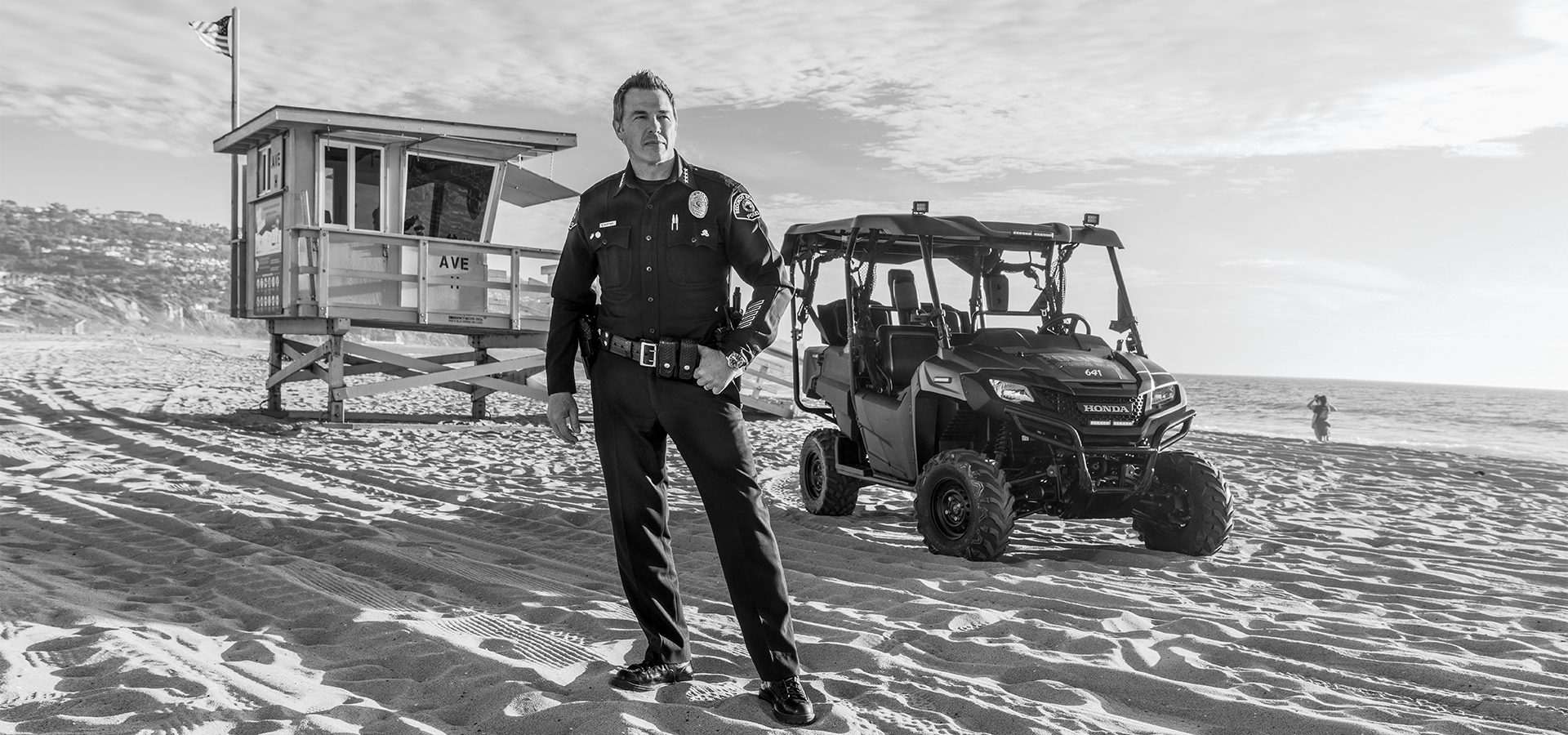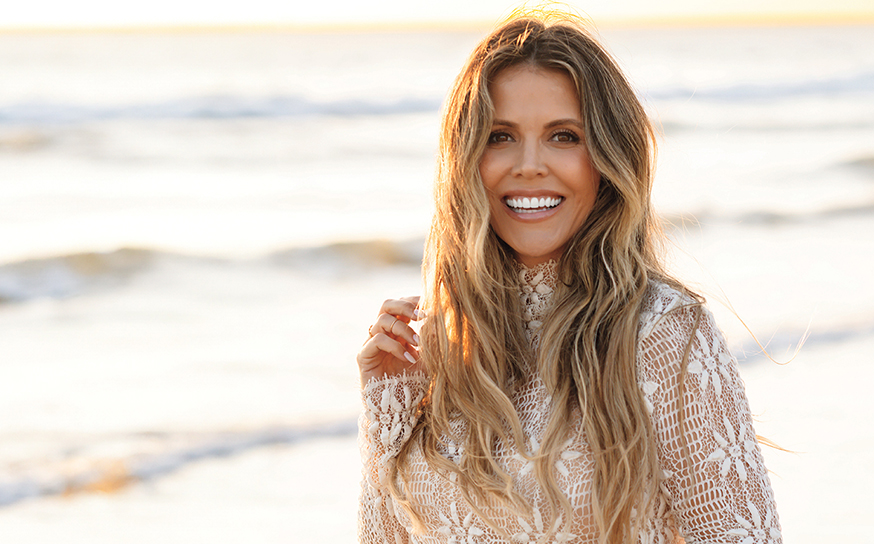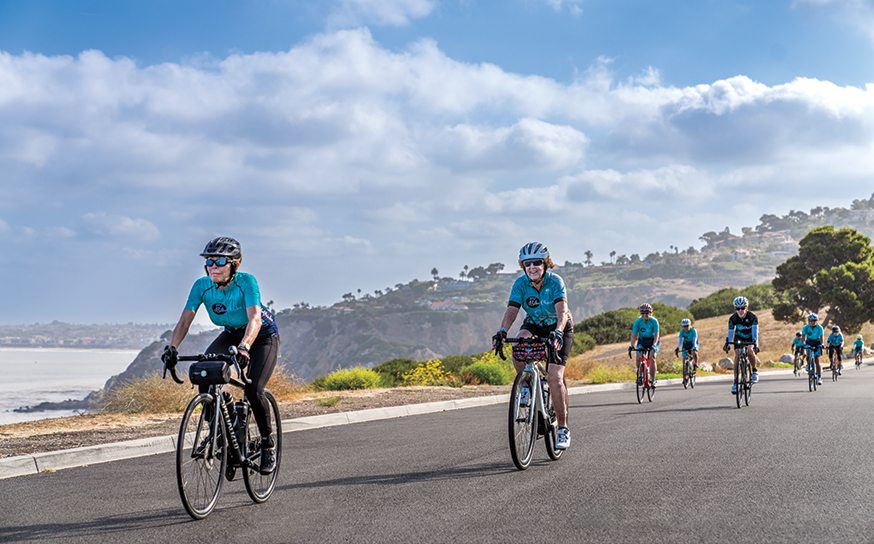Meet 6 South Bay Men Who Passionately Contributed to Our Community During the Pandemic
Stepping up.
- CategoryPeople
- Written byDiane E. Barber
- Photographed byShane O’Donnell
- AboveRedondo Beach Police Chief Keith Kauffman
Chief Keith Kauffman was at the helm of the Redondo Beach Police Department with a watchful eye on the pandemic news last spring. “I remember thinking this could go drastically wrong,” he recalls. When his daughter returned home from college, she tested positive for COVID-19. Chief Kauffman packed his van and “COVID-camped” at the police station while his family quarantined.
“This was all new territory. The only thing I knew to do was trust my emergency philosophy: Act early, act often, communicate, make quick decisions and know that there may be some mistakes. I told the entire agency, ‘We are going to make a lot of changes, and we are going to get some things wrong. Just know we will do everything we can to protect you and the people in the city.”
Keith sprang into action, and his first priority was to find N95 masks for his staff. When he discovered one in his garage that he used to sand his surfboards, he called a friend at ET Surf and said, “Contact the surfboard manufacturers and get me masks.” His friend delivered.
Key to his response strategy was an emergency debit card from the Police Foundation for immediate access to resources. “I did whatever I could to get what we needed. I blocked hotel rooms in case personnel needed a place to stay. I stocked meals at the station so no one had to go out to eat. I even traded cans of Lysol for more masks.”
He also secured Dr. Paul’s Immediate Care in Redondo Beach as his department’s medical base. “That relationship was key to our success. We had access to COVID-19 tests when they were hard to get and anything else we needed medically. Dr. Paul also suggested boosting everyone’s immune system, so vitamins and probiotics were made available to whoever wanted them.”
Keith drastically changed the station’s workplace and protocols, which included stringent cross-contamination safety measures, work shift adjustments, outdoor briefings, entry check-ins, wristbands for building access and plastic-enclosed workstations. They never had an outbreak and kept working. Today some of the protocols have been eased, and anyone wanting a vaccine has received one.
“My job requires an army of people. Everyone’s life was upended, but they all stepped up and team-played 100% and continue to do so. I am very proud of that.”
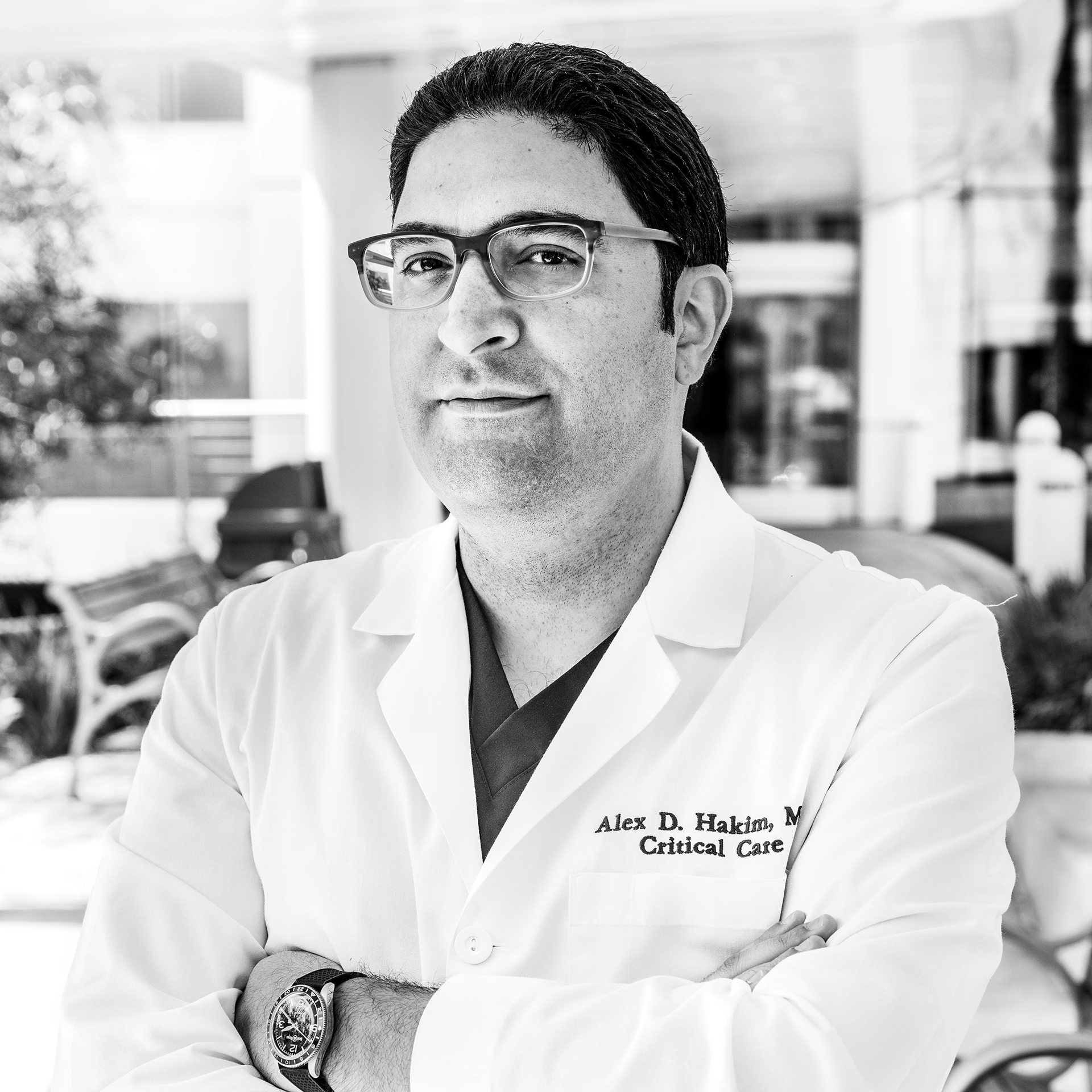
Alex Hakim, MD, a critical care specialist who leads the intensive care unit (ICU) at Providence Little Company of Mary Hospital Torrance, was the first doctor to treat a COVID-19 patient at the hospital last year.
“The virus did not behave like anything we were accustomed to, and we were unable to predict who would do well and who would not,” he says. “My first patient was in her 80s. When I told her about the diagnosis, she was very nonchalant and nothing serious happened to her. The second patient, however, a man in his 50s, required intubation to breathe. After a dramatic 20-day roller-coaster ride, he survived and was released. That was a great feeling.”
According to Dr. Alex, the morale of his team and ensuring that they felt safe were paramount. “It is emotionally complex to deal with a high mortality situation with people’s hopes constantly up and down. When faced with uncertainty, panic and anxiety can create a vacuum in leadership. So it was important that everyone stayed positive and focused on the opportunity to help during very unique circumstances.”
When Dr. Alex quarantined away from his family at a colleague’s house, he was encouraged by the outpouring of appreciation in the South Bay. The neighborhood clanging of pans and cheering in celebration of health care workers, in addition to the cards, food, masks and other donations, were treasured by him and his team.
Driven by passion and necessity, Dr. Alex assumed many roles during the pandemic beyond ICU doctor: leader, researcher, statistician, photographer (he chronicled the ICU team experience) and community relations figure. “I think every generation has a major crisis, and instead of sitting at home waiting for danger to pass, it is a privilege to contribute positively to the community. I always envisioned that my life could be essential to another human being. But I never thought that I could be essential to a population. That is very gratifying.”
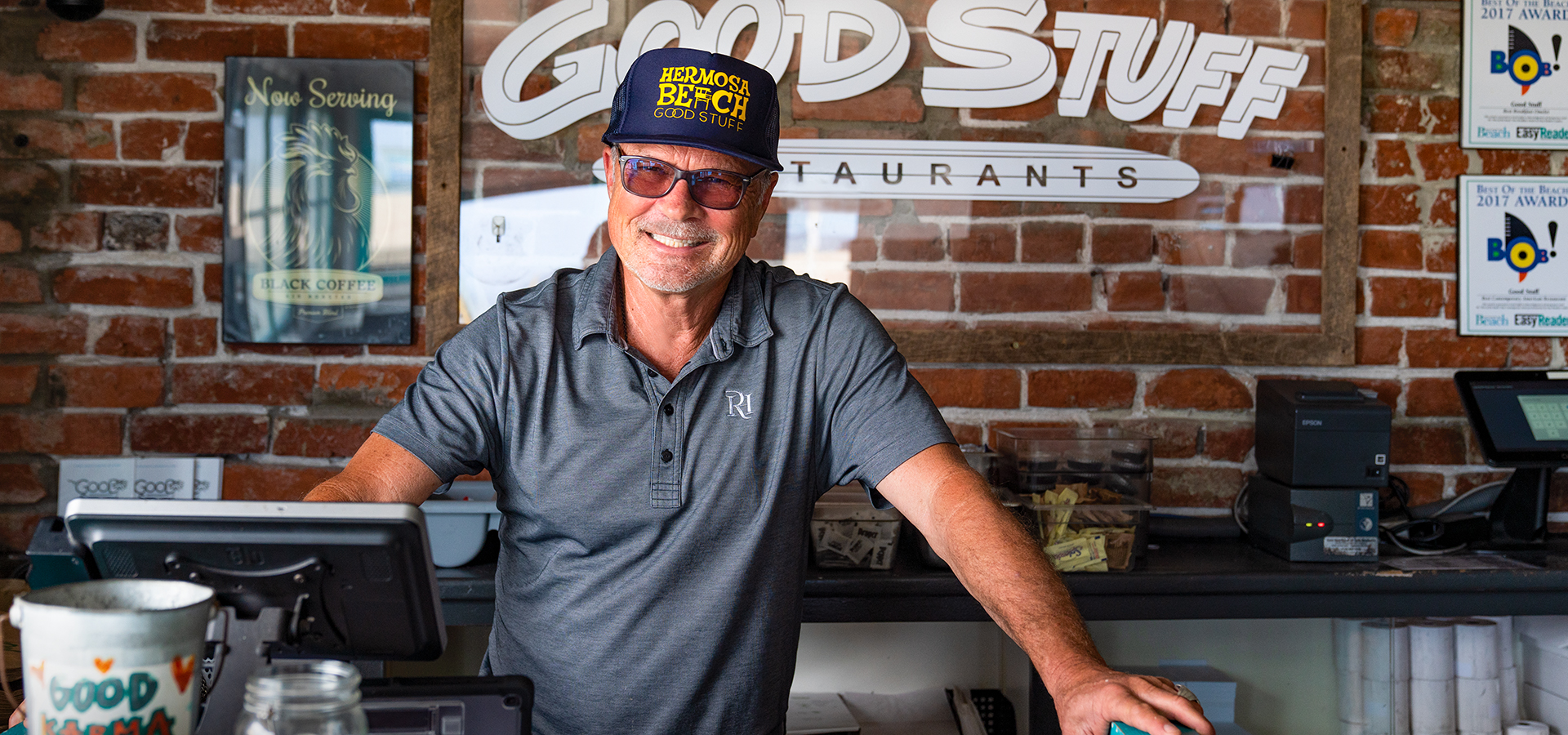
Cris Bennett, a Utah native, made a splash in the South Bay when he opened his iconic Good Stuff restaurant in Hermosa Beach in 1980. Decades later, the restaurateur’s business savvy and spirit were challenged beyond measure in the face of the pandemic. But his compassion for his family, employees and the community became his north star as he navigated the new normal.
“I thought I had been through everything until this,” he shares. “I canceled our 40-year anniversary celebration and shifted to survival mode. The beaches were closed, so I shut down the Hermosa restaurant for a few months and modified operations in Redondo Beach, Palos Verdes and El Segundo. We offered affordable takeout and delivery comfort food meals, which became very popular.”
Cris was grateful for his circumstances while other restaurants were shut down, but the imbalance of some people thriving and others losing livelihoods weighed heavily on him. “My daughter Cassidy and I went for a walk one day last spring and talked about how to help. I said, ‘I have a vehicle, I have restaurants and I have time.’ My daughter, who is married to a lifeguard, brilliantly said, ‘Dad, why don’t you do something for the first responders?’”
Cris brainstormed with his team and mobilized the 50,000+ Good Stuff email subscribers and social media followers. “I knew there were a lot of people like me who felt helpless. So we came up with a $10 meal donation program for first responders as a way to contribute. We had 200 donations the first day and 500 more the next day. We began delivering meals right away to local hospital staffs.”
The Good Stuff outreach expanded to police, fire departments and lifeguards. In three weeks, 2,500 packaged meals were delivered. “It was a whirlwind!” Cris says. “I think my employees benefited as much as anyone by doing what we did. Many of them delivered meals and were blown away by how good it felt. I am very proud of them and the customers who stepped up. I think everyone is strengthened by what we have gone through.”
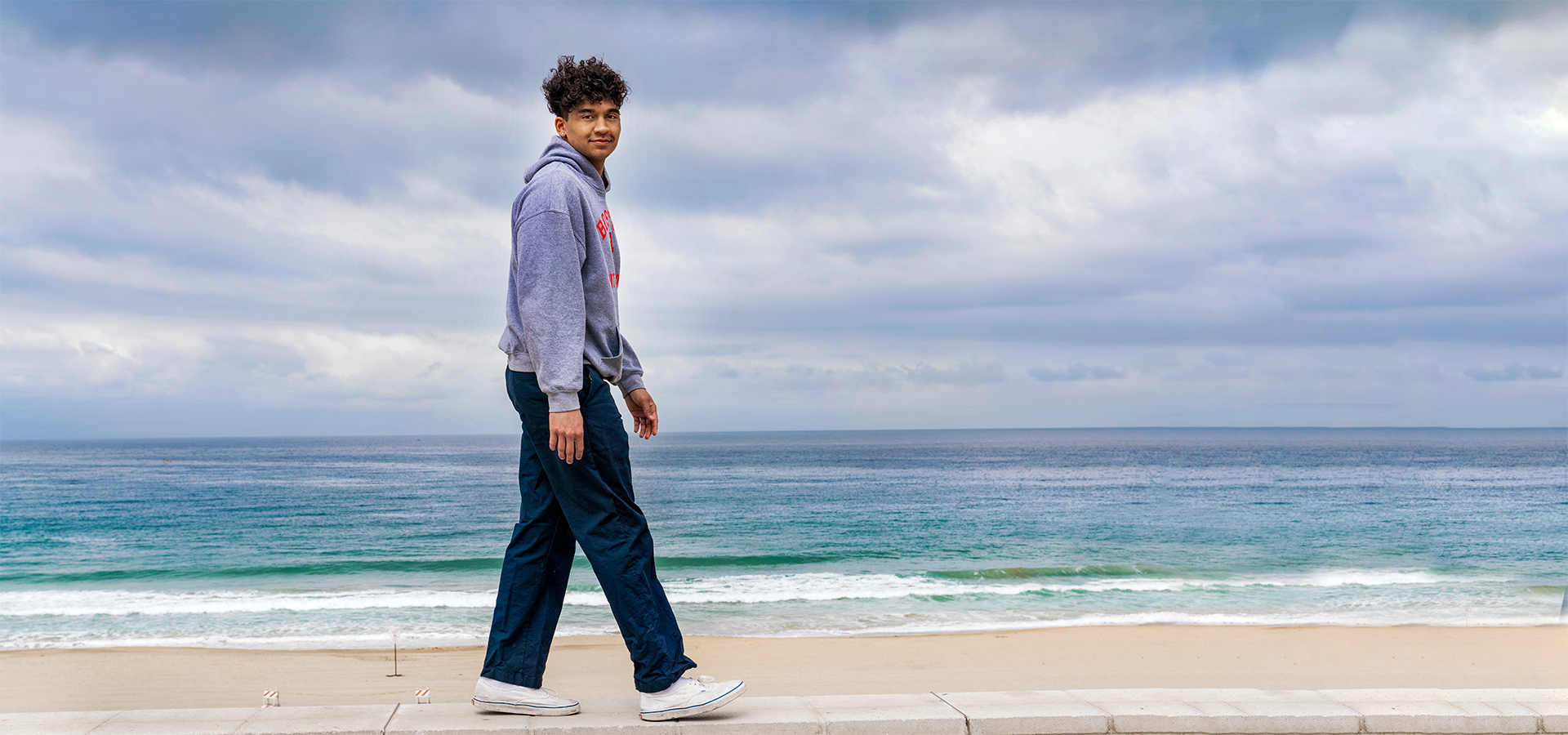
Downtown L.A.’s Skid Row was an unlikely place to find Redondo Beach native Alexander “Xan” Wesley. But the Boston University neuroscience and philosophy student felt a calling to help prior to starting college last fall.
“When I thought about it, I knew I could not make a huge difference, but at least I would be one person doing something to make a change.” – Xan Wesley
“A friend of mine passed away from renal cancer when I was in high school, which inspired me to start the Renal Medullary Carcinoma Research Foundation,” Xan says. “I met many doctors and became more interested in medicine, so I decided to become an emergency medical technician (EMT) to get my foot in the door.”
After finishing EMT training, Xan had the choice of working for a local hospital or on Skid Row. He opted for the latter—where he believed he was most needed—and went to work for the L.A. County Department of Health Services. “When I thought about it, I knew I could not make a huge difference, but at least I would be one person doing something to make a change.”
Xan worked for the county for six months alongside a doctor, two mental health workers and their supervisor, who was a nurse and a nun. The team reported to work at 7:30 a.m. at a base station in a designated building and packed their carts daily before spending long days walking the streets in uniforms and protective gloves, masks and gowns. Their mobile lifeline was packed with primary care medical supplies, water, masks, socks, COVID-19 testing kits and flu vaccines.
The extreme work conditions did not deter them while they primarily treated wounds and infections and tested for the virus. Few people had phones, so descriptions were noted of those who were tested. Through the network on the streets, the team was able to find anyone who tested positive (approximately 40 of 1,500) to move them to quarantine housing. If they refused, they were provided food and water to quarantine at their makeshift shelters.
“Most people were happy about us helping them, which was very rewarding. I am definitely going back after I become a doctor.”
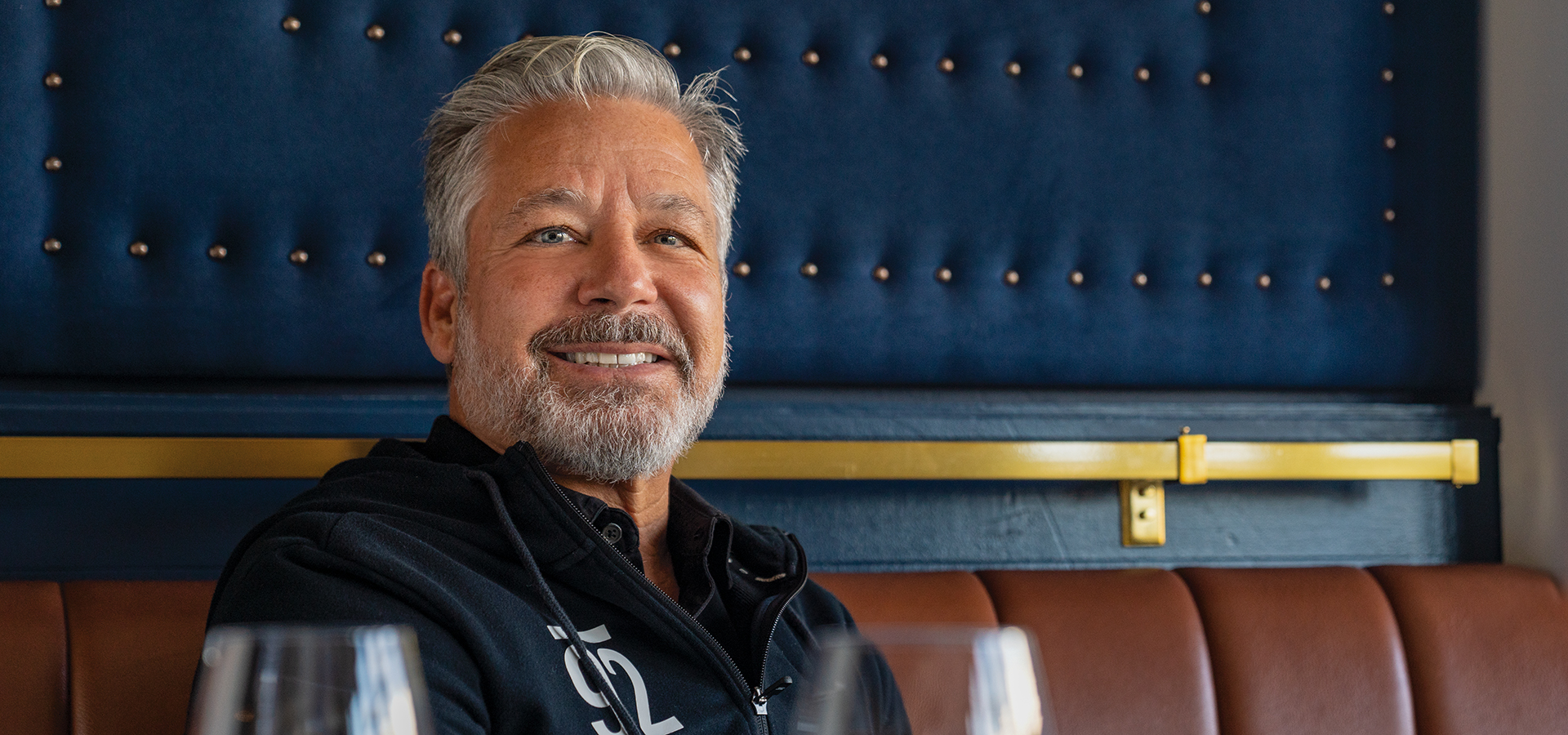
When local businessman Michael Greenberg cofounded Skechers footwear with his father, Robert, they headquartered the business in Manhattan Beach in 1992 and quickly embraced the vibrant South Bay community. It was the family’s decades-long commitment to the Beach City that ignited their heartfelt response to the pandemic and empathy for everyone struggling, particularly restaurants.
“Restaurants are at the heart of what makes Manhattan Beach so unique and special,” says Michael. “When they announced a second closure and I heard about the struggles they were having, it was clear that many were not going to survive. We had to rally together for their survival.”
And rally they did. The Skechers Restaurant COVID Relief Fund was created to provide support. The Skechers Foundation donated $500,000 and reached out to the community to raise an additional $250,000. The company dispersed 29 grants totaling approximately $750,000 to several Manhattan Beach eateries. According to Michael, the funds provided much-needed relief and helped some businesses avoid permanent closure.
Restaurateur David Slay, who opened Slay Italian Kitchen just one month before the pandemic and was operating Slay Steak + Fish House for less than one year with his family, was a grant recipient who was overwhelmed by the Greenbergs’ efforts and generosity. “I am humbled by what Michael and a lot of others did to help,” he says. “His office sent letters to restaurants asking if they needed help, and before I had time to reply I received a follow-up call. Shortly after that conversation, someone showed up with a check.” With tremendous gratitude, David was able to pay employees, vendors and rent.
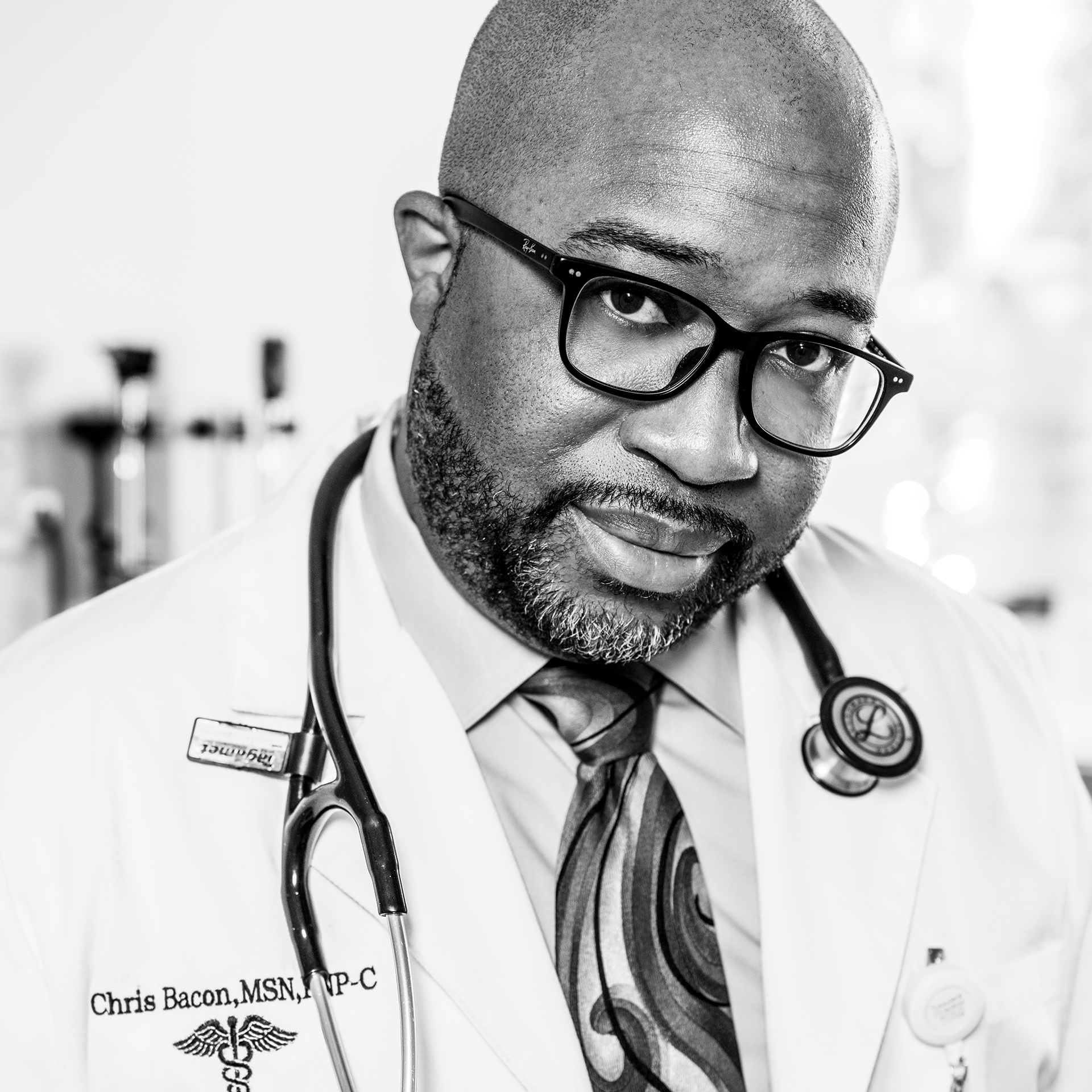
“Losing some of our favorite restaurants would have impacted the community for a long time,” says Michael. “That’s why we stepped in and our neighbors joined the cause to help them thrive. We’re a small town with big hearts, and that’s why I love it so much. I’m grateful to be a part of our beautiful corner of the world.”
Chris Bacon joined the nursing staff at Torrance Memorial Medical Center in 2016. His passion for his career inspired him to pursue a master’s degree, which led to him becoming a nurse practitioner specializing in family medicine. In February 2020 he was promoted to director of occupational health and safety.
“One month into my new role, the pandemic hit and the entire hospital was looking to me for safety protocols in compliance with local and federal regulations,” says Chris. “The previous director had retired, and I did not have a guidebook to deal with something of this magnitude. So I spent a lot of late nights researching on the Centers for Disease Control and Prevention, the California Department of Public Health and the Los Angeles County Department of Public Health websites. The first six months were tough.”
With the support of his team (six nurses, a safety officer and a secretary) and in collaboration with hospital management, Chris put together policies and procedures to safeguard Torrance Memorial’s 4,600 employees. He collaborated with the director of acquisitions to secure personal protection equipment (gowns, N95 masks, gloves, face shields and medical goggles) during a worldwide shortage, coordinated COVID-19 employee testing and reported results, and he helped mitigate staffing challenges.
The achievement he is most proud of is the on-campus vaccine clinic that he organized. “I was tasked to create something from nothing in seven days to protect the staff and their families, and it was a tremendous success.”
Chris’ empathy, commitment, selflessness and hard work were formally applauded when he was nominated by the director of respiratory therapy to receive the hospital’s The Reason is You Award—an honor bestowed on staff members in recognition of extraordinary service and excellence. “Torrance Memorial Medical Center is an amazing place to work,” he shares. “I found myself in a very difficult and challenging role, and the hospital leadership reached out to me with tremendous support. It was the hardest and most rewarding thing I have ever done, and looking back, I would not have done it any differently.”
Holiday Wish List 2024
Our annual holiday gift guide highlights the latest trends in fashion, jewelry and home goods available at local retailers for all of your gifting needs. Don’t let the season’s best and brightest pass you by!






